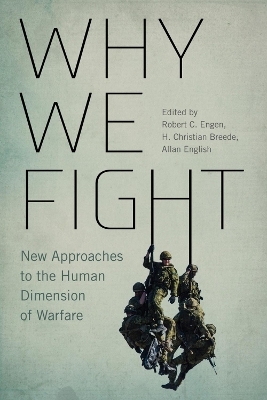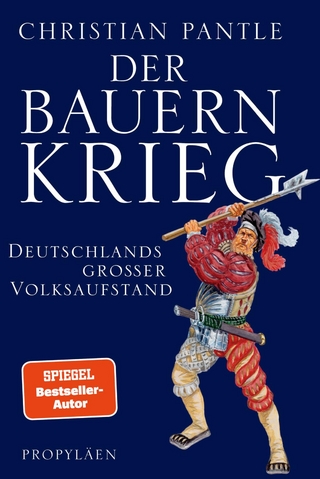
Why We Fight
New Approaches to the Human Dimension of Warfare
Seiten
2020
McGill-Queen's University Press (Verlag)
978-0-2280-0386-1 (ISBN)
McGill-Queen's University Press (Verlag)
978-0-2280-0386-1 (ISBN)
- Titel z.Zt. nicht lieferbar
- Versandkostenfrei innerhalb Deutschlands
- Auch auf Rechnung
- Verfügbarkeit in der Filiale vor Ort prüfen
- Artikel merken
Why We Fight examines the face of battle as experienced by Canadians, offering key insights on combat motivation theories, and exploring sexual violence in war, professionalism, organisations, leadership, shared intent, motivation in extremis, and the toxicity of the "warrior" culture.
For decades, the Canadian Armed Forces has used the work of foreign scholars and writers in its professional military education to try to understand the human dimension of warfare: why and how people are motivated to fight, and how they behave once they do fight. Yet the specific Canadian context, experience, and perspective are often lost in favour of appeals to universal truths. The first major Canadian study of combat motivation in almost forty years, Why We Fight redresses this imbalance by presenting some of the best new work on the subject. Bringing together top military practitioners and scholars to discuss some of the most controversial issues of modern warfare, Why We Fight examines the face of battle as experienced by Canadians. It explores sexual violence in war, professionalism, organizations, leadership, shared intent, motivation in extremis, and the toxicity of the "warrior" culture. Its chapters offer key insights on combat motivation theories, the modern operating environment, and the collective and individual identities of the men and women who fight for Canada. Many worry that technology is leading us towards a post-human age, particularly in war. Why We Fight affirms the centrality of the human being in warfare in Canada's past, present, and future.
For decades, the Canadian Armed Forces has used the work of foreign scholars and writers in its professional military education to try to understand the human dimension of warfare: why and how people are motivated to fight, and how they behave once they do fight. Yet the specific Canadian context, experience, and perspective are often lost in favour of appeals to universal truths. The first major Canadian study of combat motivation in almost forty years, Why We Fight redresses this imbalance by presenting some of the best new work on the subject. Bringing together top military practitioners and scholars to discuss some of the most controversial issues of modern warfare, Why We Fight examines the face of battle as experienced by Canadians. It explores sexual violence in war, professionalism, organizations, leadership, shared intent, motivation in extremis, and the toxicity of the "warrior" culture. Its chapters offer key insights on combat motivation theories, the modern operating environment, and the collective and individual identities of the men and women who fight for Canada. Many worry that technology is leading us towards a post-human age, particularly in war. Why We Fight affirms the centrality of the human being in warfare in Canada's past, present, and future.
Robert C. Engen is senior lecturer in war studies at Deakin University and co-editor of Why We Fight: New Approaches to the Human Dimension of Warfare. H. Christian Breede is associate professor of political science at the Royal Military College of Canada, a serving infantry officer, co-editor of Going to War? Trends in Military Interventions, author of The Idea of Failed States, and editor of Culture and the Soldier. Allan English is adjunct professor, history, Queen's University, has taught warfare theory and history at the Canadian Forces College, Toronto, and is the author of Understanding Military Culture: A Canadian Perspective.
| Erscheinungsdatum | 16.01.2021 |
|---|---|
| Reihe/Serie | Human Dimensions in Foreign Policy, Military Studies, and Security Studies |
| Zusatzinfo | 3 tables, 7 diagrams |
| Verlagsort | Montreal |
| Sprache | englisch |
| Maße | 152 x 229 mm |
| Themenwelt | Sachbuch/Ratgeber ► Geschichte / Politik ► Allgemeines / Lexika |
| Geschichte ► Teilgebiete der Geschichte ► Militärgeschichte | |
| Sozialwissenschaften ► Politik / Verwaltung ► Politische Theorie | |
| ISBN-10 | 0-2280-0386-5 / 0228003865 |
| ISBN-13 | 978-0-2280-0386-1 / 9780228003861 |
| Zustand | Neuware |
| Informationen gemäß Produktsicherheitsverordnung (GPSR) | |
| Haben Sie eine Frage zum Produkt? |
Mehr entdecken
aus dem Bereich
aus dem Bereich
neueste Manipulationstechniken als Waffengattung der NATO
Buch | Softcover (2023)
Westend (Verlag)
24,00 €


